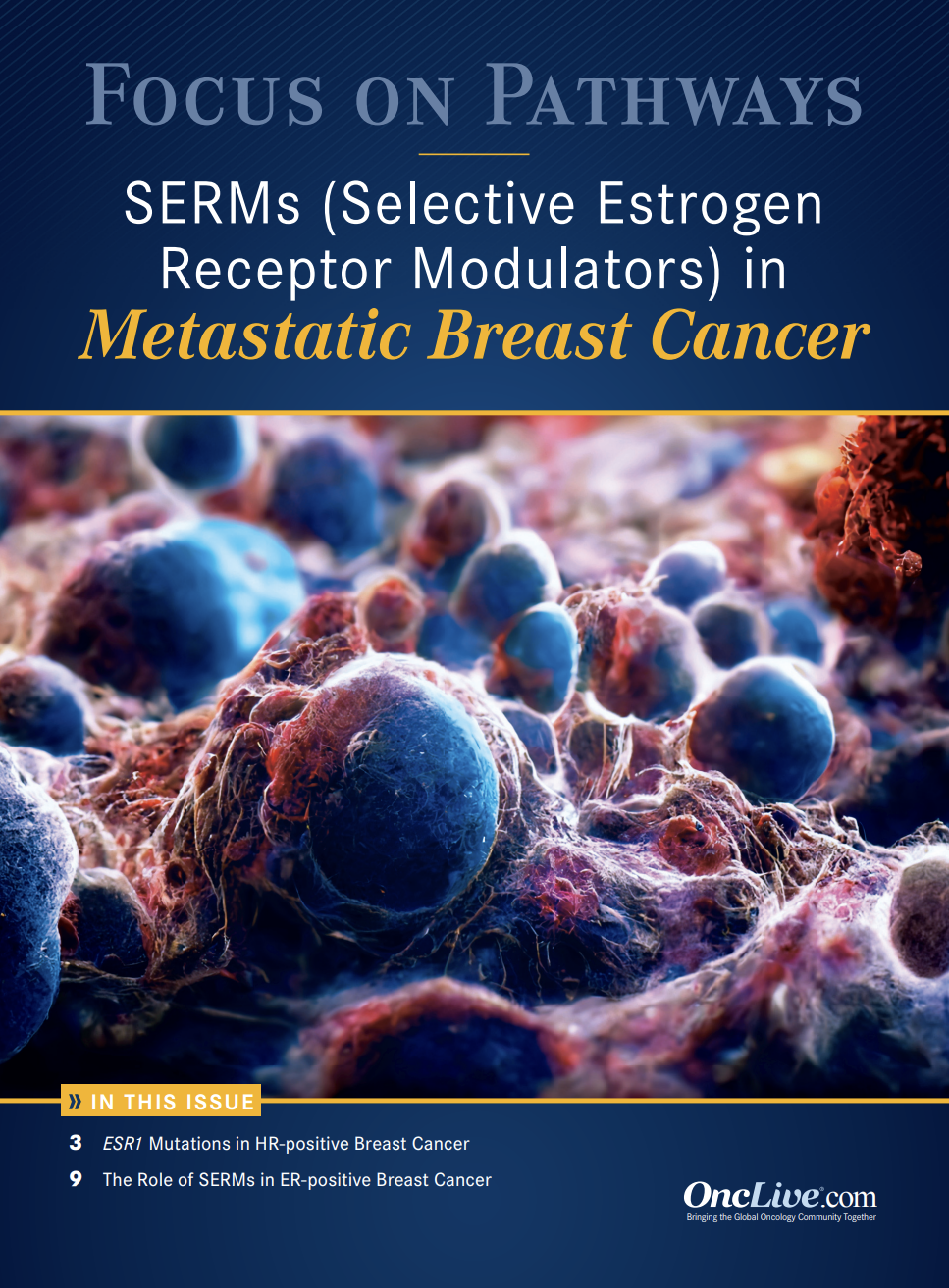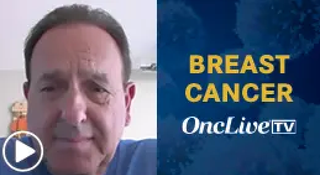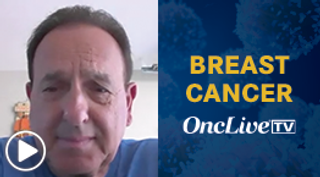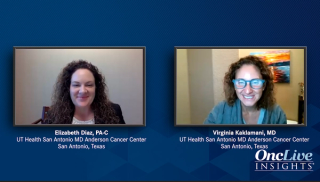
Breast Cancer
Latest News

Sacituzumab Govitecan Shows Sustained Survival Improvement in HR+/HER2– Breast Cancer
Latest Videos

CME Content
More News
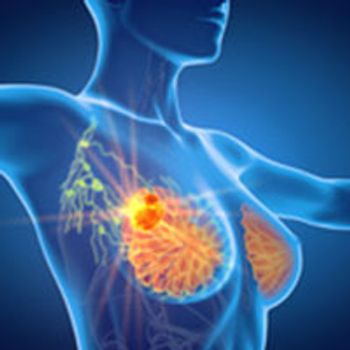
Trastuzumab deruxtecan, both as monotherapy and in combination with pertuzumab, displayed encouraging efficacy with no new safety signals among patients with HER2-positive metastatic breast cancer, according to findings from the dose expansion part of the phase 1b/2 DESTINY-Breast07 trial.
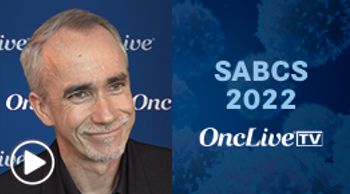
William Jacot, MD, PhD, discusses updated efficacy and safety results from the phase 2 AMALEE trial.
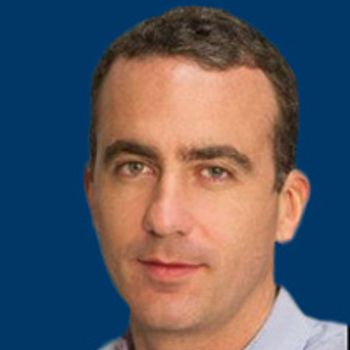
Using circulating tumor cell count as a guide to first-line treatment, either with chemotherapy or endocrine therapy, resulted in an improvement in overall survival compared with physician’s choice of treatment without CTC count for patients with metastatic, hormone receptor–positive/HER2-negative breast cancer.

Treatment with the oral selective estrogen receptor degrader elacestrant following treatment with CDK4/6 inhibitors improved progression-free survival outcomes vs standard care options in patients with estrogen receptor-positive, HER2-negative metastatic breast cancer.

Sara A. Hurvitz, MD, discusses sequencing therapeutic options for patients with HER2-positive breast cancer.
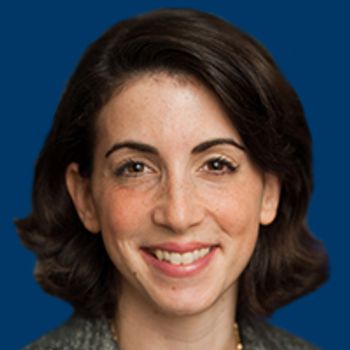
Palbociclib plus fulvestrant did not elicit a progression-free survival benefit vs fulvestrant alone in patients with estrogen receptor–positive/HER2-negative breast cancer who had progressed on prior treatment with a CDK4/6 inhibitor and aromatase inhibitor.

ARV-471 monotherapy elicited a significant clinical benefit rate in patients with estrogen receptor–positive/HER2-negative locally advanced or metastatic breast cancer who had undergone prior hormonal therapy and chemotherapy, including those with ESR1 mutations.
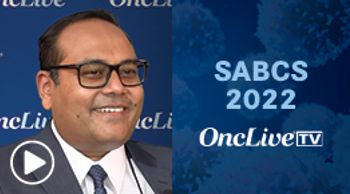
Aditya Bardia, MD, MPH, discusses the use of elacestrant in patients with estrogen receptor–positive, HER2-negative metastatic breast cancer.
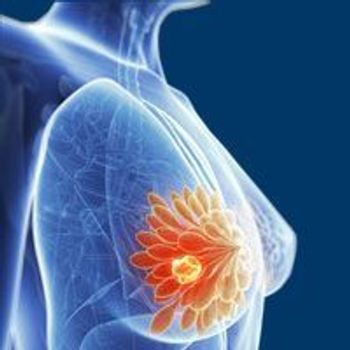
The safety profile for the combination of tucatinib, trastuzumab, and capecitabine from the phase 3 HER2CLIMB trial was confirmed with real-world data for patients with HER2-positive metastatic breast cancer.

Eribulin mesylate demonstrated a trend toward improved outcomes vs other chemotherapy options of physician’s choice in patients with HER2-low or HER2-0 metastatic breast cancer who were previously treated with at least 1 chemotherapy.
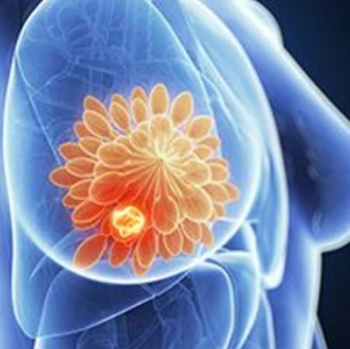
Patients with non-metastatic breast cancer undergoing treatment who added yoga to conventional exercises experienced improvements in disease-free survival, overall survival, and long-term quality of life vs those who did conventional exercises alone.
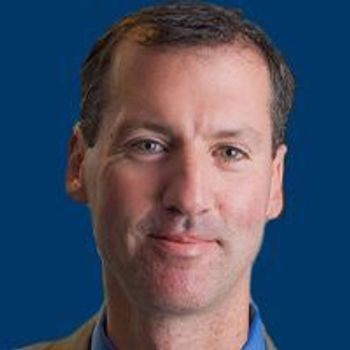
Trastuzumab deruxtecan demonstrated a 64% reduction in the risk of disease progression or death compared with physician's choice of treatment in patients with advanced HER2-positive unresectable and/or metastatic breast cancer who previously received ado-trastuzumab emtansine.
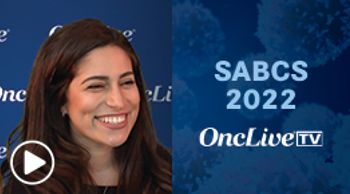
Yara Abdou, MD, discusses racial disparities in breast cancer outcomes in patients enrolled to the phase 3 RxPONDER trial.

The Breast Cancer Index test reliably identified premenopausal women undergoing adjuvant endocrine therapy for early-stage, hormone receptor–positive breast cancer who would derive benefit from the addition of ovarian function suppression.

Non-Hispanic Black patients with hormone receptor–positive/HER2-negative breast cancer were more likely to have worse outcomes vs non-Hispanic White, Asian, and Hispanic patients, according to an analysis of the phase 3 RxPONDER trial.

A clinically meaningful improvement in invasive disease-free survival and distant relapse-free survival was observed with the addition of adjuvant abemaciclib to endocrine therapy in patients with hormone receptor–positive, HER2-negative, node-positive early breast cancer, according to results of a prespecified overall survival analysis of the monarchE study.

The addition of 1 year of everolimus to adjuvant endocrine therapy did not demonstrate a statistically significant improvement in invasive disease-free survival or overall survival in patients with high-risk, hormone receptor–positive, HER2-negative breast cancer.

The combination of ribociclib plus endocrine therapy yielded a 46% reduction in the risk of disease progression or death compared with chemotherapy in pre/perimenopausal patients with aggressive hormone receptor–positive/HER2-negative advanced breast cancer.

Chemotherapy prior to treatment with endocrine therapy could increase the risk of cancer-related cognitive impairment compared with endocrine therapy alone in women with breast cancer, irrespective of menopausal status.

Tumor microenvironment of metastasis doorway density—a biomarker of distant metastatic recurrence—is higher in Black women vs White women with estrogen receptor–positive/HER2-negative breast cancer who have residual disease after neoadjuvant chemotherapy.
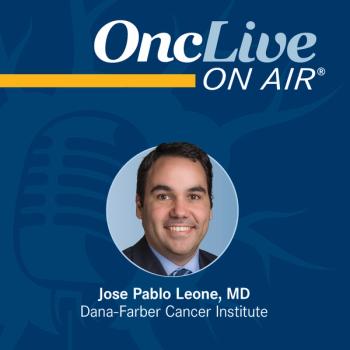
Dr Leone discusses the distinguishing features of male breast cancer, the benefits and limitations of current treatments, and the importance of raising awareness about this breast cancer subset to propel further research.
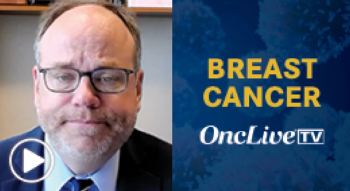
Matthew P. Goetz, MD, discusses the impact of the phase 3 PALOMA-2 trial in estrogen receptor–positive/HER2-negative advanced breast cancer.
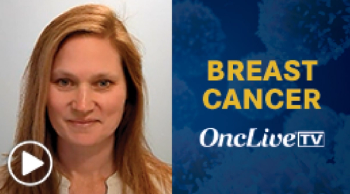
Alison K. Conlin, MD, discusses the inception of the HER2-low breast cancer treatment landscape.

Japan’s Ministry of Health, Labor, and Welfare has approved trastuzumab deruxtecan for the treatment of adult patients with HER2-positive unresectable or recurrent breast cancer after prior chemotherapy, which includes trastuzumab and a taxane.

The increasing role of antibody-drug conjugates have led to questions of sequencing for patients with HER2-positive breast cancer, whereas new data for first-generation PD-L1 inhibitors, such as pembrolizumab have shaken up the treatment paradigm for others.


